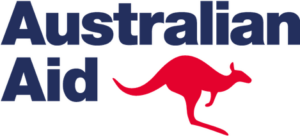With the Transforming Livelihoods & Enabling Market Access for Ethnic Minority Women Farmers in the Tea Sector (T-LEAF) project, CARE works to enable women tea farmers in Son La to equitably engage in the tea sector by increasing their income and decision-making power.
Background
In Son La province, tea has become one of the main sources of income for the rural population, particularly ethnic minority women. In an attempt to boost the tea sector, the province plans to increase the tea cultivation land to 5,500 hectares by 2020, yielding 54,000 tons of tea leaves. However, its tea sector shares similar challenges with the country’s. Most of Son La tea is sold wholesale, without labels, branding, or packaging Tea cultivation here is characterized as unsustainable with high amounts of chemicals, including pesticide and herbicide. The over-dependence on low-value and volatile export markets makes the tea sector highly vulnerable to market fluctuations. The majority of tea farmers are currently described as “unlinked” with a lack of investment and a low level of sustainable cultivation practices. In addition, ethnic minority women play critical roles in tea production but are not able to fully benefit from doing tea business. Overall, tea growers, particularly ethnic minority women farmers, suffer from lower economic returns.
Objective of T-LEAF
Through T-LEAF, CARE works to enable women tea farmers in Son La to equitably engage in the tea sector with their income being increased and decision-making power in the tea market system enhanced.
Key outcomes:
- Ethnic minority women tea farmers have increased income, and self-confidence.
- Local agricultural extension and financial services meet the needs of ethnic minority women tea farmers.
- Ethnic minority women tea farmers are supported by policy implementation.
T-LEAF ‘s approach
Hybrid market systems development approach
- Systemic change in extension services, access to finance, and access to information to improve the economic status of women farmers.
- Sustainability to continue market services to the target project participants beyond the project life cycle.
- Adaptive management to refine the vision for market system change, improve strategies, and adjust the interventions accordingly.
Gender equity and social inclusion approach
- Building women farmers’ confidence, self-esteem, aspirations, knowledge, and skills.
- Improving women farmers’s social networks and power in market negotiations.
- Addressing discriminatory gender stereotypes and exclusionary practices that prevent women farmers from engaging equitably in the tea sector, as well as creating an enabling environment through enhancing the efficacy of public policy implementation and market services.
Participants of T-LEAF
800 ethnic minority women tea farmers
Location
Chieng Khoa, Van Ho, Long Luong communes (Van Ho district, Son La province) and Phieng Luong commune (Moc Chau district, Son La province).
Time
5/2019 – 9/2021
Donor
